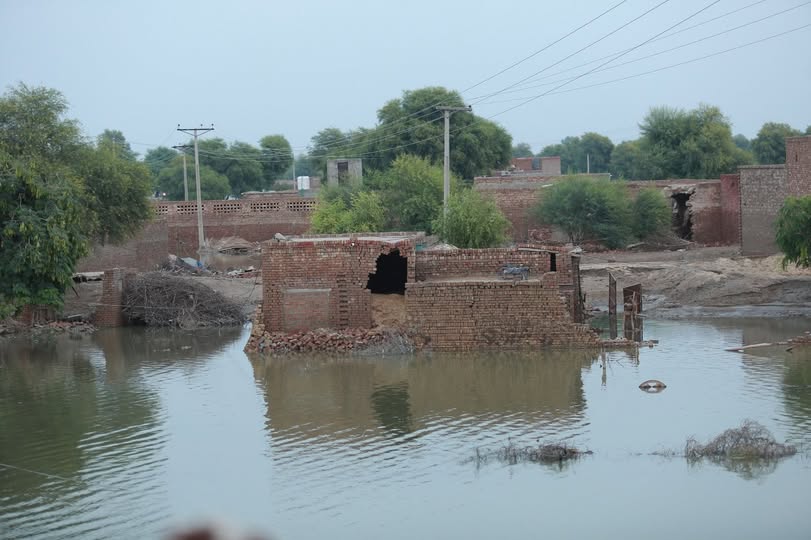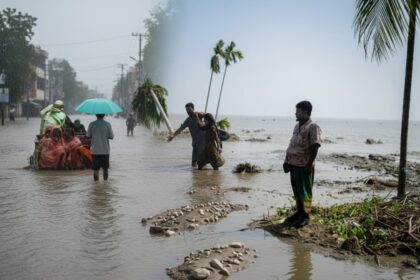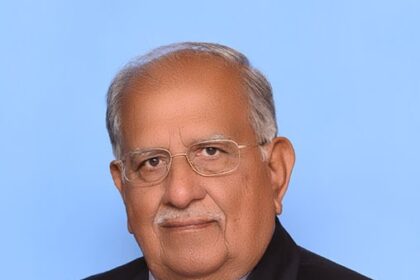HANDS Welfare Foundation, working with German partners Medico International and the European Center for Constitutional and Human Rights, has launched a legal strategy to secure compensation and accountability for communities devastated by the 2022 floods. The initiative, framed as part of the broader Climate Justice Pakistan movement, relies on baseline research documenting severe losses suffered by small farmers in Larkana and Jacobabad and links those losses to climate-driven extreme weather.
Although Pakistan contributes less than 1% to global carbon emissions, the country remains among the most climate-vulnerable in the world. Rapid glacier melt, frequent landslides, cloudbursts and extreme rainfall have turned natural events into large-scale humanitarian crises, with fertile farmland washed away, livestock wiped out and essential services in health, education and transport severely disrupted. Millions of people have been displaced and communities continue to struggle to recover from 2022 while facing repeated extreme weather.
The case against two German corporations is being prepared for filing in a German court and seeks to set a global precedent for corporate accountability. HANDS and its partners argue that major carbon-emitting companies must either reduce emissions or compensate vulnerable communities harmed by their products and policies. The legal action aims to show that corporate responsibility is an essential element of Climate Justice Pakistan and international climate redress.
The campaign stresses that historical emissions have been driven by industrialised nations and corporations in the United States, Europe and Great Britain, while countries like Pakistan bear the brunt of the impacts. Weak domestic infrastructure and governance often exacerbate the human toll, turning extreme weather into widespread humanitarian disaster. HANDS insists that accountability must extend beyond borders to those who profit most from fossil fuels.
Alongside legal redress, HANDS and local Climate Justice Committees in Larkana and Jacobabad demand immediate systemic remedies. They call for cancellation of Pakistan’s unsustainable foreign debt as part of true climate justice, free distribution of land to landless peasants through agrarian reform to secure livelihoods, and the release of the pledged USD 100 billion per year to climate-affected nations. They also urge withdrawal of fossil fuel subsidies in favour of renewable energy alternatives, removal of encroachments on natural waterways and expansion of drainage to manage heavy rainfall, and strengthening of national and provincial disaster management bodies to improve preparedness and response.
HANDS stresses that the promised financial and technological support to climate-affected countries must be delivered without delay. At the same time, Pakistan’s government is urged to realign development planning with environmental sustainability to reduce future vulnerabilities. The organisation frames these demands as essential components of Climate Justice Pakistan and of a global movement that must confront the fossil fuel industry and the states that enable it.
For affected farmers in Sindh and other regions, the litigation is intended to provide both a pathway to compensation and a legal precedent that could compel large emitters to change practices. HANDS and its partners hope the German court case will strengthen international mechanisms for corporate responsibility while drawing attention to Pakistan’s disproportionate losses despite its minimal role in causing the climate crisis.
The call for action is clear: affected communities need immediate relief and long-term structural change. Achieving Climate Justice Pakistan, advocates say, requires international support, domestic reforms and legal accountability so that future generations do not inherit an irreversible ecological collapse.











